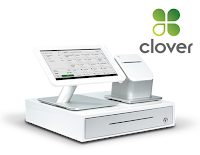Credit Card Processing Explained
Written by Rob Olson, President
Quantum Merchant Services
tag key words; credit card processing, merchant service accounts, accept credit cards, card processing equipment, what is a merchant account, card processing fees, credit card processing companies,
Consumers increasingly are turning to plastic over paper when they open their wallets. In 2012, credit cards were responsible for more than $2.5 trillion in transactions, according to the American Bankers Association. When you add another $1.63 trillion for debit and prepaid Visa and MasterCards transactions, according to Nilson Report, you quickly understand that plastic is a necessary payment option for most businesses.
Yet many small businesses still don't accept credit cards. If you're one of the laggards, the entire transaction may retain the aura of a mystic ritual — swipe a card, input some numbers, and money magically appears in the bank. In reality, though, credit card transactions involve coordination between multiple high-speed computer networks.
How the merchant account process works
When a merchant makes a sale and swipes a customer's credit card, the card number, the amount, and the merchant ID travel over the credit card processor's computer network. The credit card processor can either be a bank or a company that does nothing but provide credit card processing services.
From the processor's network the transaction goes to a credit card computer network. If the customer is using Visa, for example, the transaction will go to Visa's network. In turn, the electronic transaction goes to the bank that actually issued the card. The bank then checks the account and verifies the customer has adequate credit to cover the purchase. The bank then sends the merchant an authorization over the network. Now the sale is complete..
At the end of the business day, the merchant sends that day's charges, in a batch, to the credit card network for processing. The transactions travel via the merchant's credit card processor. Individual transactions are then stripped out and sent back to the individual cardholders' banks. Banks then debit cardholders' accounts and make appropriate payments to the merchant's credit card processor through the Fed reserve bank automatic clearing house
The credit card processor then credits the merchant's bank account for the transaction amount, minus its fees for the transaction. Those fees also go toward paying transaction fees to the issuing bank and the credit card network. Despite the use of computers, it can take two business days before the merchant's account is credited.
Opening a Merchant Account
Many small businesses go through a specialized credit card processor or an independent sales organization, commonly referred to as an "ISO." You need a merchant account to receive credit card payments.
Rob Olson
Quantum Merchant Services
7300 Hudson Blvd
Oakdale, MN 55128
1-888-881-0657 ext 707


Comments
Post a Comment